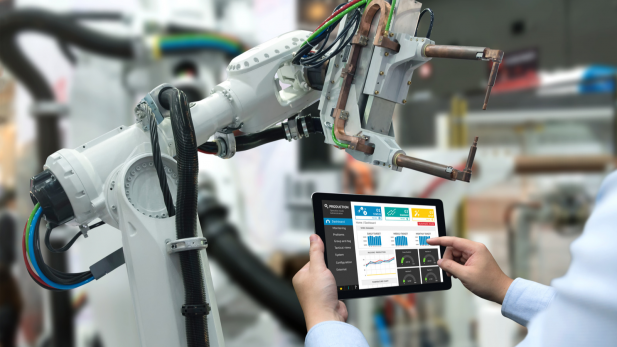Sustainability as a Service Offering

This strategic initiative aims to develop practical tools and frameworks that enable companies to compete for sustainability as a service offering. The initiative investigate how industrial firms can strengthen their competitiveness with sustainability as an integrated element in service offerings.
About the Initiative
Understanding the multifaceted, integrated nature of products, services, and data has become essential for competitiveness. Leveraging capabilities and insights into P+S+D integration enables firms to configure value systems and resources that skillfully combine and integrate products, services, and data.
In a world where service is the norm these capabilities present opportunities to embrace new competitive priorities. In particular, firms are embracing sustainability as a service differentiator in response to the UN Compact Goals and the ESG agenda, and in recognition of their societal responsibilities. Similarly, there is an increasing interest in subscription- and outcome-based business models as alternative payment options. “Sustainability as a Service Offering” present major growth opportunities for Danish firms. The strategic initiative is based on a desire to understand how “Sustainability as a Service Offering” can successfully be leveraged as a competitive response in a changing world, which raises important questions for managers and researchers.
Related research disciplines include (but not limited to):
- Servitization and product service systems
- Modularity
- Pricing
- Ecosystems
- Platforms
- Business model innovation
- Circular economy
- Service operations management
Activities
We hold a wide range of activities, such as:
- Research seminars
- Visiting professors and scholars
- Research collaborations with international universities
We are hosting the exciting EurOMA Service Operations Management Forum 2025, March 13-14, 2025, at CBS. More information can be found at:
https://www.tilmeld.dk/somf2025
Recent Publications
1. Raja, J., Neufang, I.F., and Frandsen, T. and Golgeci, I. (2024) “Working through frame incongruences: A process perspective on (re)framing for digital servitization,” Technovation, Vol. 129, 102891. https://doi.org/10.1016/j.technovation.2023.102891
2. Shen, L., Shi, Q., Parida, V. and Jovanovic, M. (2024) “Ecosystem orchestration practices for industrial firms: A qualitative meta-analysis, framework development and research agenda,” Journal of Business Research, Vol. 173, 114463. https://doi.org/10.1016/j.jbusres.2023.114463
3. Burin, H.P., Fogliatto, F.S. and Hsuan, J. (2023) “The electricity market in Brazil: A multilevel perspective of sector agents for liberalization to residential consumers,” Energy for Sustainable Development, 76, 101289. https://doi.org/10.1016/j.esd.2023.101289
4. Davies, P., Bustinza, O.F., Parry, G. and Jovanovic, M. (2023) “Unpacking the relationship between digital capabilities, services capabilities, and firm financial performance: A Moderated Mediation Model,” Industrial Marketing Management, Vol. 115, p. 1-10. https://doi.org/10.1016/j.indmarman.2023.09.005
5. Engås, K.G., Raja, J. and Neufang, I.F. (2023) “Decoding technological frames: An exploratory study of access to and meaningful engagement with digital technologies in agriculture,” Technological Forecasting and Social Change, Vol. 190, 122405. https://doi.org/10.1016/j.techfore.2023.122405
6. Jovanovic, M., Bustinza, O.F., Davies, P. and Glenn Parry, G. (2023) “The interplay of product modularity, service types, and servitization depth on firm performance: A moderated mediation model,” Production Planning & Control. https://doi.org/10.1080/09537287.2023.2286276
7. Karatzas, A., Papadopoulos, G., Stamolampros, P., Raja, J. and Korfiatis, N. (2023) “Front- and back-end employee satisfaction during service transition,” International Journal of Operations and Production Management, Vol. 43, No. 7, p. 1121-1147. https://doi.org/10.1108/IJOPM-06-2022-0352
8. Karlsson, C. and Frandsen, T. (2023) “New product development by extending the business model,” in: The PDMA Handbook of Innovation and New Product Development. Eds. L. Bstieler. and C.H. Noble, Oxford: Wiley, p. 477-495.
9. Kim, M.J., Lim, C.H. and Hsuan, J. (2023) “From technology enablers to circular economy: Data-driven understanding of the overview of servitization and product–service system in Industry 4.0,” Computers in Industry, 148, 103908. https://doi.org/10.1016/j.compind.2023.103908
10. Thomson, L., Sjödin, D., Parida, V. and Jovanovic, M. (2023) “Conceptualizing business model piloting: An experiential learning process for autonomous solutions,” Technovation, Vol. 126, 102815. https://doi.org/10.1016/j.technovation.2023.102815
11. Yurt, O., Sorkun, M.F. and Hsuan, J. (2023) “Modularization of front-end logistics services in e-fulfillment,” Journal of Business Logistics, Vol. 44, No. 4, p. 583-608. https://doi.org/10.1111/jbl.12354
Involvement in the Initiative
Research Faculty involved in the Project are: